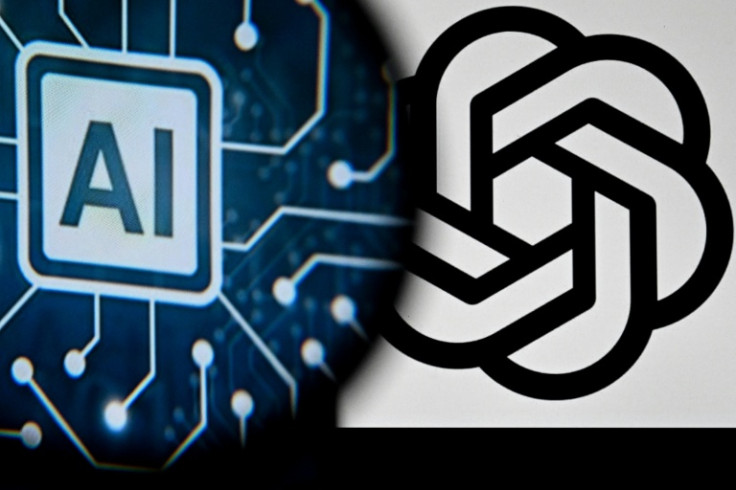Sora 2 Faces Its Biggest Challenge Yet as MPA Urges OpenAI to Prevent Copyright Misuse in AI Video Creation
MPA claims the new platform is rife with unauthorised, copyrighted content

The world is still reeling from the realistic, transformative capabilities of Sora, OpenAI's groundbreaking text-to-video model. Yet, as the next iteration, Sora 2, looms on the horizon, the conversation is already shifting from innovation to legal challenge.
The powerful Motion Picture Association (MPA) is sounding the alarm, formally pushing OpenAI to implement robust safeguards.
MPA Urges Action in Letter to OpenAI
On Monday, the Motion Picture Association demanded that OpenAI 'take immediate and decisive action', regarding Sora 2, its newest video creation model, claiming the tool is being utilised to make media that infringes on copyright protection.
Since the Sora application was launched last week, users have been flooding the platform with clips generated by AI, which include characters from well-known television programmes and companies.
'Since Sora 2′s release, videos that infringe our members' films, shows, and characters have proliferated on OpenAI's service and across social media', MPA CEO Charles Rivkin said in a statement.
In a blog post, OpenAI Chief Executive Sam Altman explained that the business intends to offer copyright holders' more granular control' regarding the usage of their characters.
However, Rivkin insisted OpenAI 'must acknowledge it remains their responsibility – not rightsholders' – to prevent infringement on the Sora 2 service, and that 'well-established copyright law safeguards the rights of creators and applies here.'
Industry Voices: Copyright Violation and the Surge of Sora Clips
Worry arose instantly following the creation of Sora videos last week, which depicted various scenes, including James Bond playing poker with Altman and body-cam footage showing the cartoon character Mario avoiding police.
Sora 2 Test: Operation Thunderballz
— Benjamin De Kraker (@BenjaminDEKR) September 30, 2025
( James Bond vs @sama ) pic.twitter.com/yW5MzmEQus
Sora 2 Remix → Mario's Escape.
— Rory Flynn (@Ror_Fly) October 3, 2025
The remix feature is underrated.
PROCESS:
1. Generate an intial video
2. Post it.
3. Select Remix.
4. Describe next scene / repeat.
Initial Prompt:
Realistic body cam footage of a police officer pulling over Super Mario in his mario cart. It was… pic.twitter.com/Sn3VwuiGSM
While OpenAI initially used an opt-out system, which required studios to request that characters be excluded from Sora, Altman's subsequent blog post announced the platform's shift to an opt-in model, implying that Sora won't permit the use of copyrighted characters unless given explicit authorisation.
OpenAI's Response: A Shift to Opt-In (But With Caveats)
Nonetheless, Altman pointed out that the firm might not be capable of stopping every instance of intellectual property being improperly used. 'There may be some edge cases of generations that get through that shouldn't, and getting our stack to work well will take some iteration', Altman wrote.
Sora 2 is engineered to generate video content solely based on text prompts. While conceptually similar to ChatGPT, the crucial distinction is that it generates highly realistic video clips, rather than creating written answers.
This is the Sora app, powered by Sora 2.
— OpenAI (@OpenAI) September 30, 2025
Inside the app, you can create, remix, and bring yourself or your friends into the scene through cameos—all within a customizable feed designed just for Sora videos.
See inside the Sora app👇 pic.twitter.com/GxzxdNZMYG
Aside from the fact that all of its output will be created by AI, the new service is expected to perform in a manner very similar to established, popular short-form video applications such as TikTok or Instagram Reels.
Siwei Lyu, co-director of the Center for Information Integrity at the University at Buffalo, observed that 'This technology is some of the most realistic AI video generation coming to market.'
He further commented that the quality, judging by the demonstrations shared by OpenAI, 'was another one or two notches higher than the first generation', Lyu said. 'It becomes more realistic and more convincing.'
Legal Precedent: Past Battles Against AI Image Generators
The swift progress of generative video technology also introduces new concerns regarding online manipulation and the spread of misinformation. Lyu stated that 'Everyone — truly, all social media users — should have this awareness in our minds not to be easily taken away by what we're seeing or listening to.'
Although OpenAI has yet to announce when Sora 2 will be publicly released, the application is currently available for download in a restricted version and is rapidly climbing the rankings in the Apple App Store.
Sora is literally is getting trained on various copyrighted characters to train their model without permission , @MAPPA_Info @ufotable @ToeiAnimation should sue them by filing a legal case on it https://t.co/C6V17nKLSZ pic.twitter.com/IqCXM5uQmv
— 💧Bungee Gum ⭐ (@Truejustice_7) October 2, 2025
Copyright concerns have become a significant problem throughout the surge in generative AI. In June, Disney and Universal filed a lawsuit against the AI image creator Midjourney, claiming the company distributed and used AI-generated characters from their movies without ceasing despite demands to do so.
In September, Disney also dispatched a cease-and-desist letter to the AI startup Character.AI, cautioning the business against unauthorised use of its characters, which are protected by copyright.
© Copyright IBTimes 2025. All rights reserved.





















